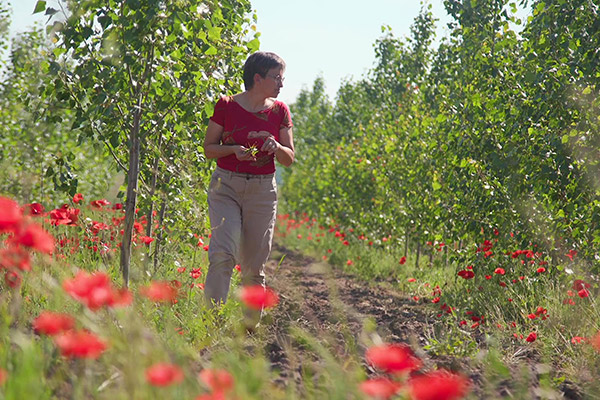Short rotation plantations (SRP) with poplars can contribute to bioeconomy by satisfying the rising demand for lignocellulosic material and thus help realizing the transition from using nonrenewable resources to renewable resources for energy and material production. Moreover, poplar plantations can provide positive environmental impacts such as landscape diversification, phytoremediation, enhancing biodiversity, soil preservation and water purification via nutrient buffering. SRP are also considered to have positive economic effects especially in rural areas. Since poplar plantations can be established on marginal lands, which are not suitable for a profitable production of traditional agricultural crops, poplar plantations offer a crops diversification, new employment opportunities and increase of revenues to a large number of farmers and rural landowners.

Former studies showed that these diverse environmental and economic benefits of poplar plantations are perceived as important incentives for farmers to adopt SRP. However, the total amount of established SRP e.g. with poplars is still low all over Europe. Likely, this is due to a set of barriers that may be effective to a different extent, such as financial risks, lack of skills, lack of tradition and land availability.
This study investigates the incentives and barriers for farmers and landowners in the D4EU project region (Malacky region in Western Slovakia). Qualitative interviews in 2018 explored personal and situational factors which influenced local farmers’ (N=19) willingness to adopt SRP.
Slovakia’s land fragmentation in combination with the required landowner’s consent, competition with food production and lack of identification with SRP were identified as prominent barriers. The economic benefit from using low quality lands and environmental benefits from SRP were identified incentives. Moreover, the study found agricultural cooperatives more open to SRP than agricultural business companies as they are more interested in the economic benefits and prefer agricultural activity over fallow land.
Since the study identified conflicting views about the possible impacts of SRP on the environment and the rural community it is considered crucial to provide farmers with science-based facts on these issues. This aspect should be also acknowledged to increase stakeholder acceptance such as landowners, governmental actors, and the general public, needed to develop measures to encourage SRP.
Link to BioEnergy Research:
https://link.springer.com/article/10.1007%2Fs12155-020-10240-6
The topic of incentives and barriers for farmers’ and landowners’ willingness to establish sustainably managed poplar plantations has also been addressed in an interview with Biobridges and Sandra Liebal. Watch the full video.
